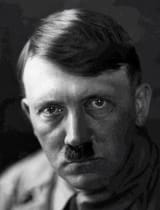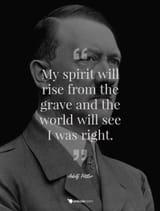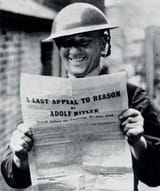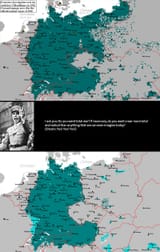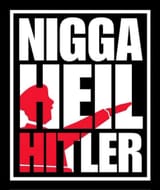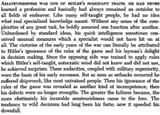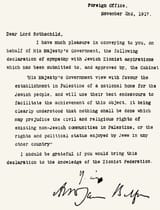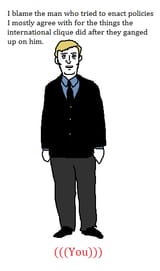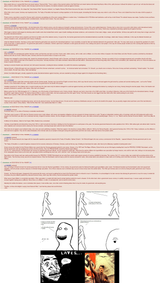>>509584280
Because that's how they felt about it in the moment. Nobody in 1940 knew how dysfunctional the regime was our how hopelessly fucked its industrial situation would be.
France had been widely considered the most -powerful land army in the planet following their victory in WW1 and they fell in weeks. In hindsight, it was a fluke but it wouldn't be for decades that we came to understand just how unprepared France's army had been, so to the world it looked like an invincible new strategy leaning on cutting edge technologies had toppled Atlas and the world was in freefall. Britain was "fighting for its life" over the skies of London, the US Pacific fleet was sunk in Pearl Harbour, the USSR was reeling with Panzers in sight of the Kremlin and it was well-believed that the Nazis had a head start on the creation of a nuclear bomb. America was so afraid of the potential of 'the blitzkrieg' that they built their entire doctrine around responding to and containing an armoured breakthrough before it could Dunkirk them.
The allies had faced tough fights against the Reich's best in the mountains of Tunisia, and again in the mountains of Italy. They expected another fight every bit as tough, or tougher, in the Plains of France since now Germany's back would be to the wall. The allies had faced down Germany's best in '42 and '43 and destroyed them, so when they faced off in tank country in 44, what remained of Germany's armoured strength was spent quickly and the remainder was rolled over and sent tumbling back to the Rhine.
We know all that in hindsight now, but in the moment the allies assumed the worst, that the open terrain would make free up the German Panzers and make the fights harder, not easier, and that Rommel would be waiting for them on the beaches of Normandy with ~200 Panthers and all the lessons learned from the defeat in North Africa. That was the battle they were prepared to fight, and that's why it's the way that war films depict things.
 7/5/2025, 5:36:43 PM
No.509580479
[Report]
>>509580693
>>509580813
>>509580980
>>509581100
>>509581750
>>509581885
>>509582317
>>509582387
>>509582397
>>509582743
>>509582785
>>509583069
>>509583217
>>509583279
>>509583575
>>509584280
>>509584408
>>509584453
>>509584456
>>509584524
>>509586513
>>509586788
7/5/2025, 5:36:43 PM
No.509580479
[Report]
>>509580693
>>509580813
>>509580980
>>509581100
>>509581750
>>509581885
>>509582317
>>509582387
>>509582397
>>509582743
>>509582785
>>509583069
>>509583217
>>509583279
>>509583575
>>509584280
>>509584408
>>509584453
>>509584456
>>509584524
>>509586513
>>509586788
